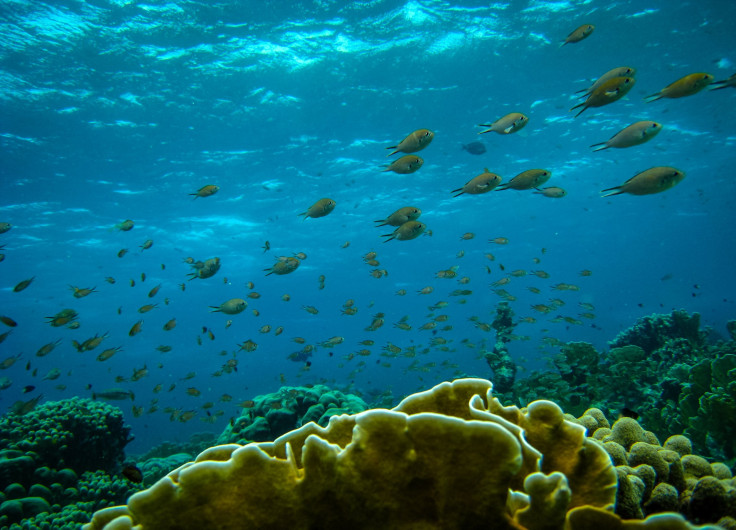Fish Urine Essential For Survival, Growth Of Coral Reefs, New Study Finds

A number of species of fish take refuge in the folds and uneven surfaces of coral reefs and return the favor by releasing important nutrients essential for the survival and growth of the corals – in the form of urine.
A new study published Tuesday in the journal Nature Communications showed that fishing in the Caribbean coral reefs reduces the amount of these key nutrients by nearly half, endangering the ecosystem.
Studies have shown that fish release phosphorus into water when they urinate. This, combined with the nitrogen excreted as ammonium through their gills, aids the corals reefs in their survival. When the large and top predatory fish in the sea are absent, this flow of nutrients is disrupted.
“Part of the reason coral reefs work is because animals play a big role in moving nutrients around,” said lead author Jacob Allgeier, a postdoctoral researcher at the University of Washington’s School of Aquatic and Fishery Sciences, in a press release.
“Fish hold a large proportion, if not most of the nutrients in a coral reef in their tissue, and they’re also in charge of recycling them. If you take the big fish out, you’re removing all of those nutrients from the ecosystem.”
The researchers surveyed 143 fish species at 110 sites over 43 Caribbean coral reefs. The amount of fishing at each site differed to various degrees – no fishing allowed to a virtual wipeout of the larger fish.
The reefs with more large, predator fish were found to have healthy levels of nutrients, as opposed to reefs with low numbers, by almost 50 percent in some cases.
“Simply stated, fish biomass in coral reefs is being reduced by fishing pressure. If biomass is shrinking, there are fewer fish to pee,” Allgeier said.
Allgeier’s inspiration for taking on this research was a 1980s paper by now emeritus research professor Judith Meyer at the University of Georgia, which showed that coral reefs with fish grew at over double the speed of reefs where fish were absent.
Allgeier is currently working on models that showcase the total amount and types of nutrients provided by different fish species to the reefs, in collaboration with other scientists. “It’s remarkable how robust the models are just from knowing fish size and species,” he explained.
The study was coauthored by scientists from the Center for Biological Diversity, the Smithsonian Institution and North Carolina State University.
© Copyright IBTimes 2024. All rights reserved.






















